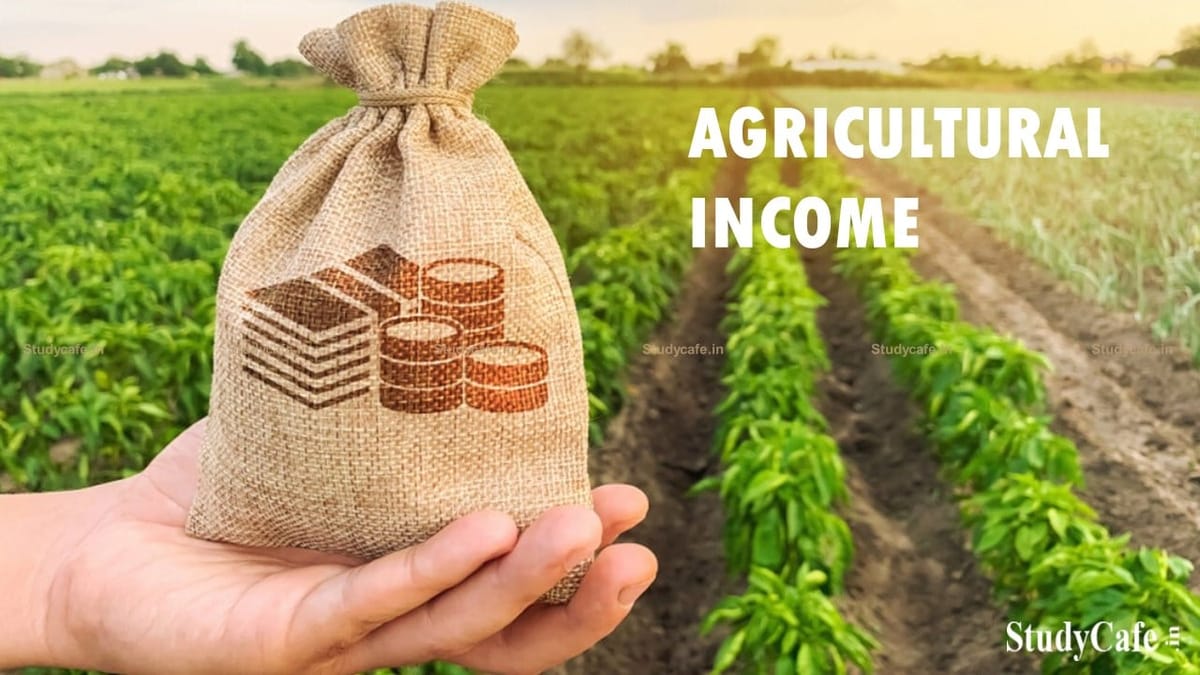Everything You Need To Know About Agricultural Income
Deepshikha | Feb 22, 2022 |

Everything You Need To Know About Agricultural Income
In India, agricultural income is a primary source of income for the rural population. Furthermore, agricultural income is India’s principal source of income. The Indian government has taken several steps to boost agriculture, including launching initiatives, loan concessions, exemptions, and advantages for farmers. The Income Tax Department gives tax exemption on agricultural income earned during the financial year, in line with other Central Government policies. We’ve gone over the definition of agricultural income for tax purposes, tax treatment, and capital gain on the sale of agricultural land in this post.
The definition of agricultural income for taxes purposes as defined under Section 2(1A) of the Income Tax Act of 1961. The following types of revenue are covered in the agricultural income definition:
Any money obtained from the land in the form of rent or revenue. This type of terrain can be found in India and is used for agriculture. Land rent is a frequent source of income for many people. Rent is the monetary equivalent of the right to utilise the land. However, money derived from the transfer or sale of agricultural land is not included in such land revenue. The rent or earnings must have a direct relationship with the land. Only then will it be considered as agricultural revenue derived from agricultural land for taxable purposes.
Any revenue generated by agricultural operations on agricultural land.
Agricultural operations are not defined in the Income Tax Act of 1961. However, in the case CIT v. Raja Benoy Kumar Sahas Roy, the Supreme Court established criteria for agriculture activities. The two categories of agricultural activity are as follows:
The profit a grower makes from actions that make his or her crop marketable. However, such efforts must not alter the product’s basic features. For example, if the cultivator washes and puts the produced potatoes into a sack, these are tasks that make the harvest marketable. Furthermore, these activities preserve the product’s distinctiveness. Let’s look at another scenario. If the cultivator produces potatoes and turns them into chips and packs to make them marketable then the entire originality of the produce changes.
Any profit derived from the sale of produce grown or received by a cultivator or rent-in-kind recipient. Furthermore, no process other than an agricultural process has been carried out.
Rent is received from any building owned and occupied by the rent recipient. It comprises revenue from any such land occupied by the cultivator or the recipient of rent-in-kind, as well as revenue from any land on which or the produce of which any agricultural operation is carried out.
Section 10(1) of the Income Tax Act of 1961 exempts agricultural income from taxation. However, income tax is levied on a portion of agricultural income as well as non-agricultural income produced throughout the fiscal year. The partial integration of agricultural income is possible if the following criteria are met:
In case of any Doubt regarding Membership you can mail us at [email protected]
Join Studycafe's WhatsApp Group or Telegram Channel for Latest Updates on Government Job, Sarkari Naukri, Private Jobs, Income Tax, GST, Companies Act, Judgements and CA, CS, ICWA, and MUCH MORE!"